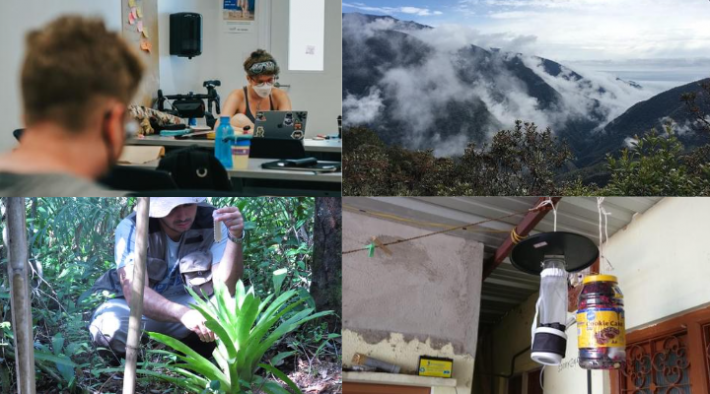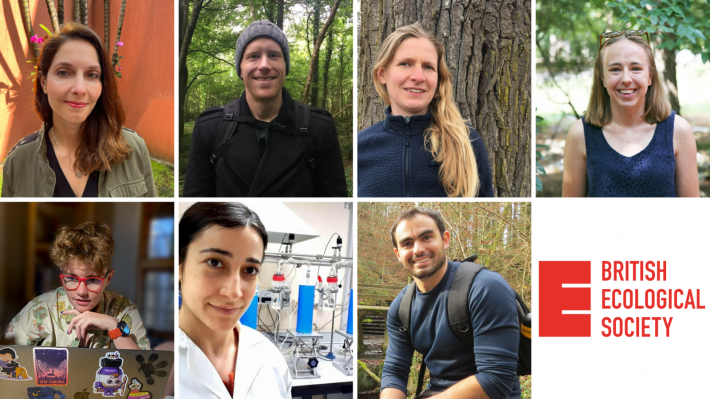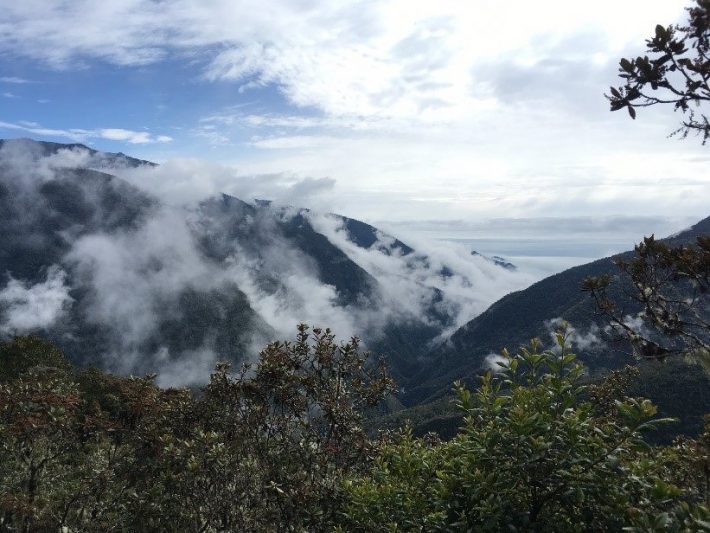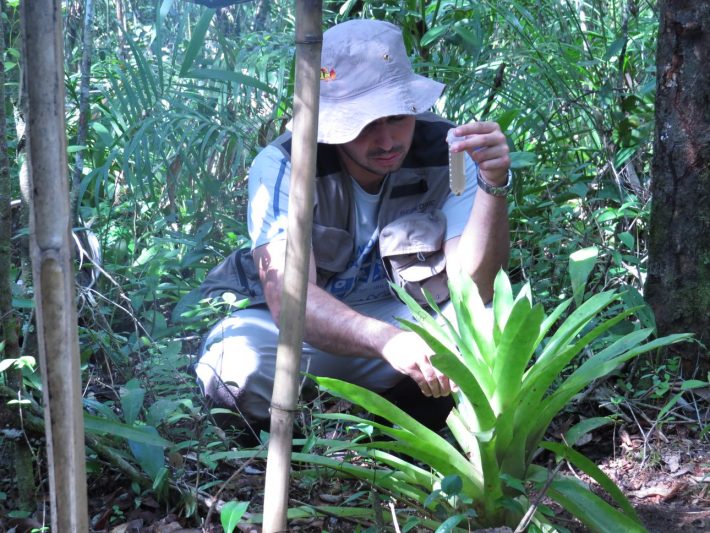BES journal prize winners revealed
We are pleased to announce the winners of the journal prizes for papers published in 2022. The winners, selected by the Senior Editors of the journals, will be presented with their awards at the BES Annual Meeting.

Today the BES has announced the winners of its journal prizes for research published in 2022. All prizes are awarded for the best paper by an early career researcher published in each of the seven BES journals.
The winning authors will receive their awards from the BES president at the Annual Meeting in Belfast in December. This years exceptional papers span diverse topics, from mapping mosquito borne diseases to the importance of threatened mosses in tropical mountain cloud forests.

The journal prize winners are as follows:
The Harper Prize: Angela Illuminati, University Rey Juan Carlos
The John L Harper Early Career Researcher Award is given each year to the best paper in the Journal of Ecology.
Angela Illuminati from the University Rey Juan Carlos has been awarded this year’s prize for their paper: Coordination between water uptake depth and the leaf economic spectrum in a Mediterranean shrubland
This work was born after a previous failure, which makes it an even greater success
-Angela Illuminati
Angela’s research provides a new perspective on the links between water and nutrient use in a semiarid Mediterranean plant community.
Understanding plant functional strategies related to water and nutrient use is especially relevant in dryland environments. The low availability of soil resources are a strong limiting factor for plant survival in these areas and is a main driver of species competition and coexistence.
The Robert May Prize: Tanya Strydom, University of Montreal
The Robert May Prize is awarded each year for the best paper in the journal Methods in Ecology and Evolution.
Tanya Strydom from the University of Montreal has been awarded this year’s prize for their paper: Food web reconstruction through phylogenetic transfer of low-rank network representation
Tanya’s winning research utilised knowledge from one network of organisms to make predictions for what a network in a completely different location might look like. This is useful to ecologists as there is a shortage of interaction data, mostly because sampling interactions in the field is hard.
In the paper, Tanya and co-authors used the known interactions for European mammals and used this knowledge to construct a network of probabilities for Canadian terrestrial mammals. The hope is that the framework developed in this study will help ecologists to use the interaction data we do have, to create plausible networks for less well studied areas.

The Southwood Prize: Paula Prist, EcoHealth Alliance
The Southwood Prize is awarded each year for the best paper in the Journal of Applied Ecology.
Paula Prist from EcoHealth Alliance has been awarded this year’s prize for their paper: Roads and forest edges facilitate yellow fever virus dispersion
Paula and co-authors explored how landscape structure affects yellow fever virus dispersion through its vector, mosquitoes. Understanding this can aid better landscape planning and better organisation of vaccination campaigns.
Paula and co-authors found that yellow fever virus disperses on average 1.42 km every day and uses roads adjacent to forest areas and forest edges along agricultural areas to disperse. In contrast, core areas of forest regions were found to be important barriers for virus movement.
The Georgina Mace Prize: Luke Potgieter, University of Toronto Scarborough
The Georgina Mace Prize is awarded each year for the best paper in the journal Ecological Solutions and Evidence.
Luke Potgieter from the University of Toronto Scarborough has been awarded this year’s prize for their paper: Prioritizing sites for terrestrial invasive alien plant management in urban ecosystems
Luke’s study combined aspects of social science, geography and ecology to pinpoint which areas across the Toronto region are most sensitive to plant invasions. The analysis revealed high priority sites as those of significant biodiversity conservation value, and that a large proportion of these priority areas are already heavily invaded.
Research like Luke’s is important as there is an urgent need to protect and manage areas impacted by biological invasions. What’s more, limited resources call for the strategic prioritisation of these areas.
“This research has been the catalyst for several other research projects, for example re-evaluating ecological restoration priorities across the Toronto region to alleviate inequalities,” Luke commented.
The Haldane Prize: Aya Permin, University of Copenhagen
The Haldane Early Career Researcher Award is given is given each year to the best paper in the Functional Ecology journal.
Aya Permin from the University of Copenhagen has been awarded this year’s prize for their paper: High nitrogen-fixing rates associated with ground-covering mosses in a tropical mountain cloud forest will decrease drastically in a future climate
Aya’s research reveals the importance of bryophytes (mosses and liverworts) as a nitrogen source in tropical mountain cloud forests. Nitrogen is a critical nutrient for plant productivity growth but its availability is often limited. This has led to the evolution of mutualistic partnerships between certain plants and nitrogen-fixing bacteria. Until now, the role of bryophytes in ecosystem nitrogen cycling has been largely overlooked.

Aya explained “I feel super proud and honoured to win the Haldane prize. It means a lot that my work is acknowledge in this way. Also, it is very cool I think, that a paper on bryophytes gets the prize, since they are, in my opinion, often overlooked.”
Worryingly, the findings from Aya’s research suggest that predicted future declines in precipitation in tropical mountain cloud forests will reduce nitrogen inputs from bryophytes. Research in this area, like Aya’s, can help inform conservation efforts to preserve these critical ecosystems.
The Rachel Carson Prize: Michelle Evans, University of Georgia
The Rachel Carson Prize is awarded each year for the best paper in the journal People and Nature.
Michelle Evans from the University of Georgia has been awarded this year’s prize for their paper: Socio-ecological dynamics in urban systems: An integrative approach to mosquito-borne disease in Bengaluru, India
Michelle’s research combined field sampling of mosquitoes with in depth-interviews of local people in Sarjapur, India, an area experiencing a high burden of mosquito borne diseases. The research showed that people’s everyday experiences of mosquitoes were influenced by how they moved around and used outdoor space.
The study’s combination of ecological and social approaches gives insight into how communities can manage mosquito-borne diseases. Michelle hopes that the study will demonstrate the benefits gained from integrative ecological work and will serve as the impetus for similar projects in the future.
The Elton Prize: Pablo Augusto Antiqueira, University of Campinas
The Elton Prize is awarded each year for the best paper in the Journal of Animal Ecology.
Pablo Augusto Antiqueira from the University of Campinas has been awarded this year’s prize for their paper: Warming and top predator loss drive direct and indirect effects on multiple trophic groups within and across ecosystems
Little is known about how climate change and biodiversity loss will impact specific interactions within ecosystems. To increase our understanding of this, Pablo’s winning study looked at tank-bromeliads, a neotropical plant that supports a rich fauna of microorganisms, making them a natural microecosystem.

The study evaluated how an increase in temperature and top predator loss would impact different areas of the food web in this micro-ecosystem. Pablo and co-authors found impacts at each level of the food web. The results provide new evidence for how anthropogenic changes predicted for the following decades could affect different groups of organisms across ecosystems.
Read more of the research published in our journals here
Like what we stand for?
Support our mission and help develop the next generation of ecologists by donating to the British Ecological Society.